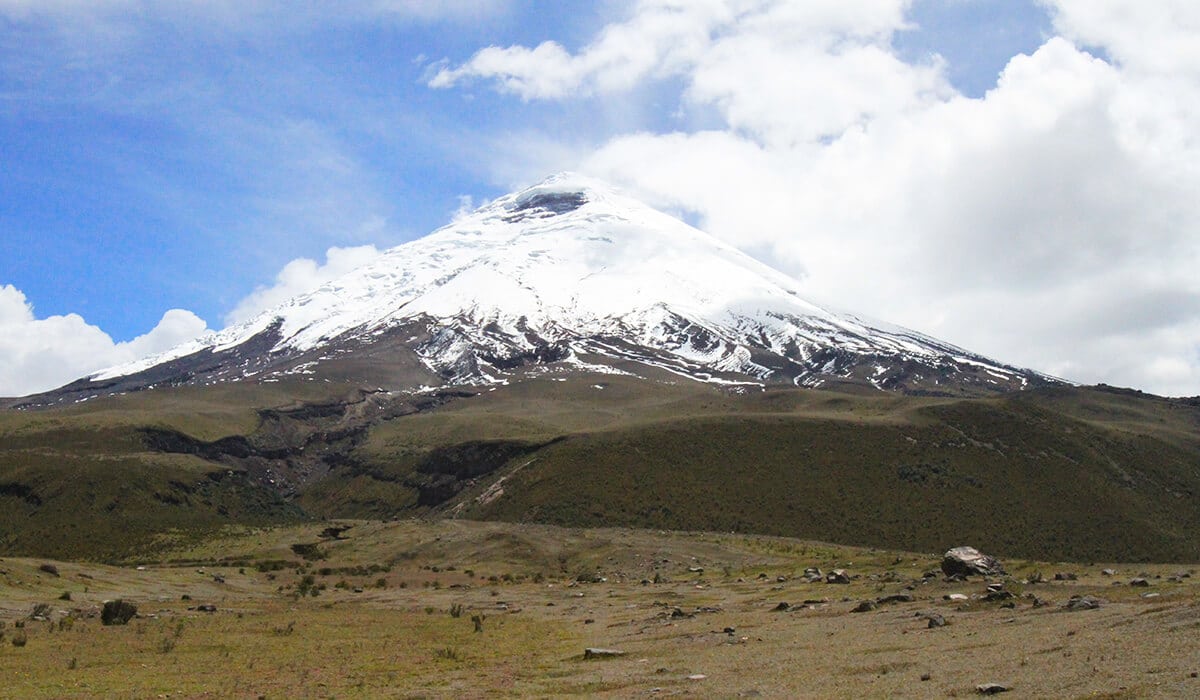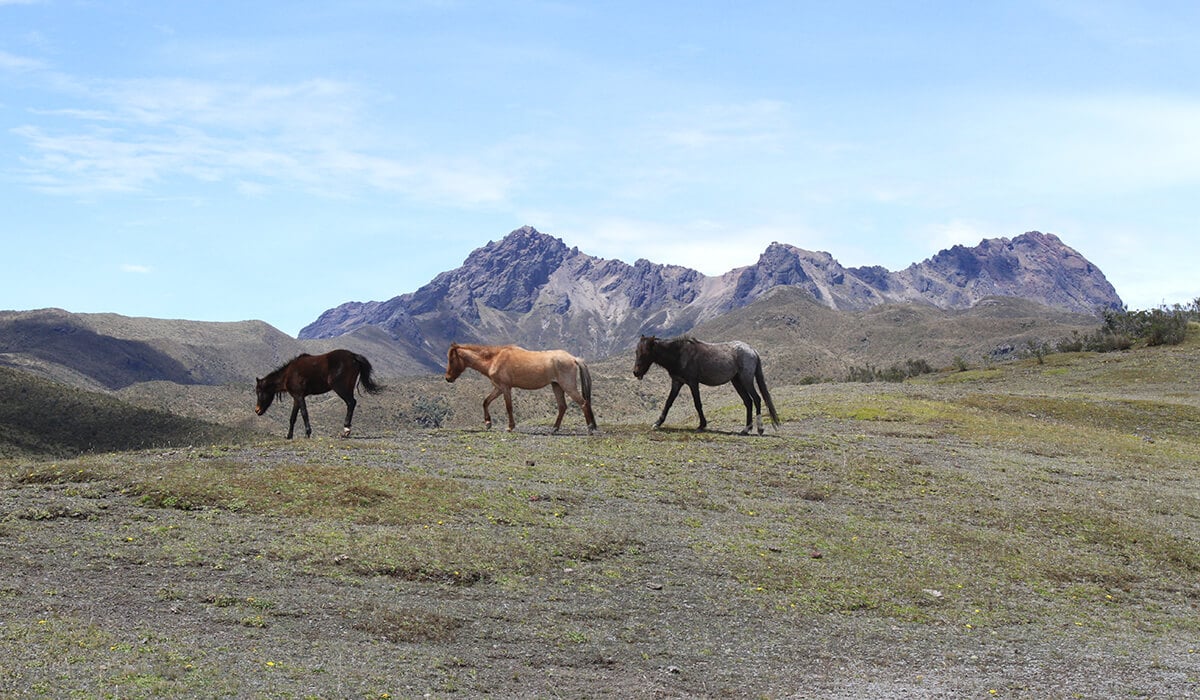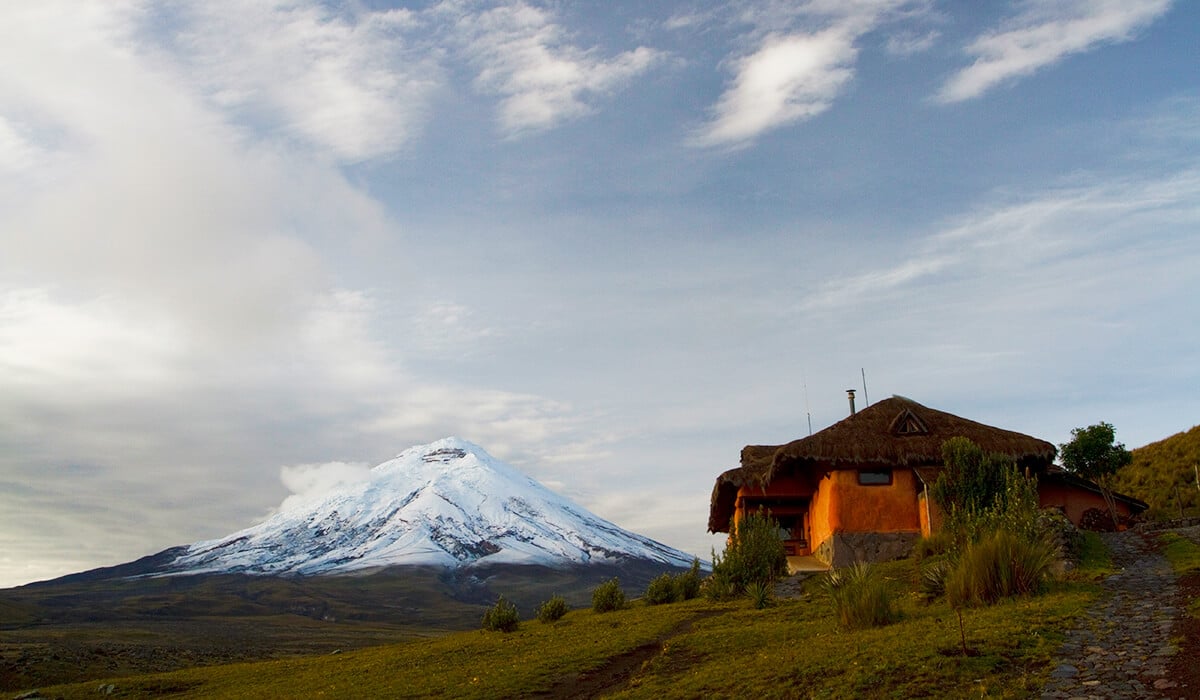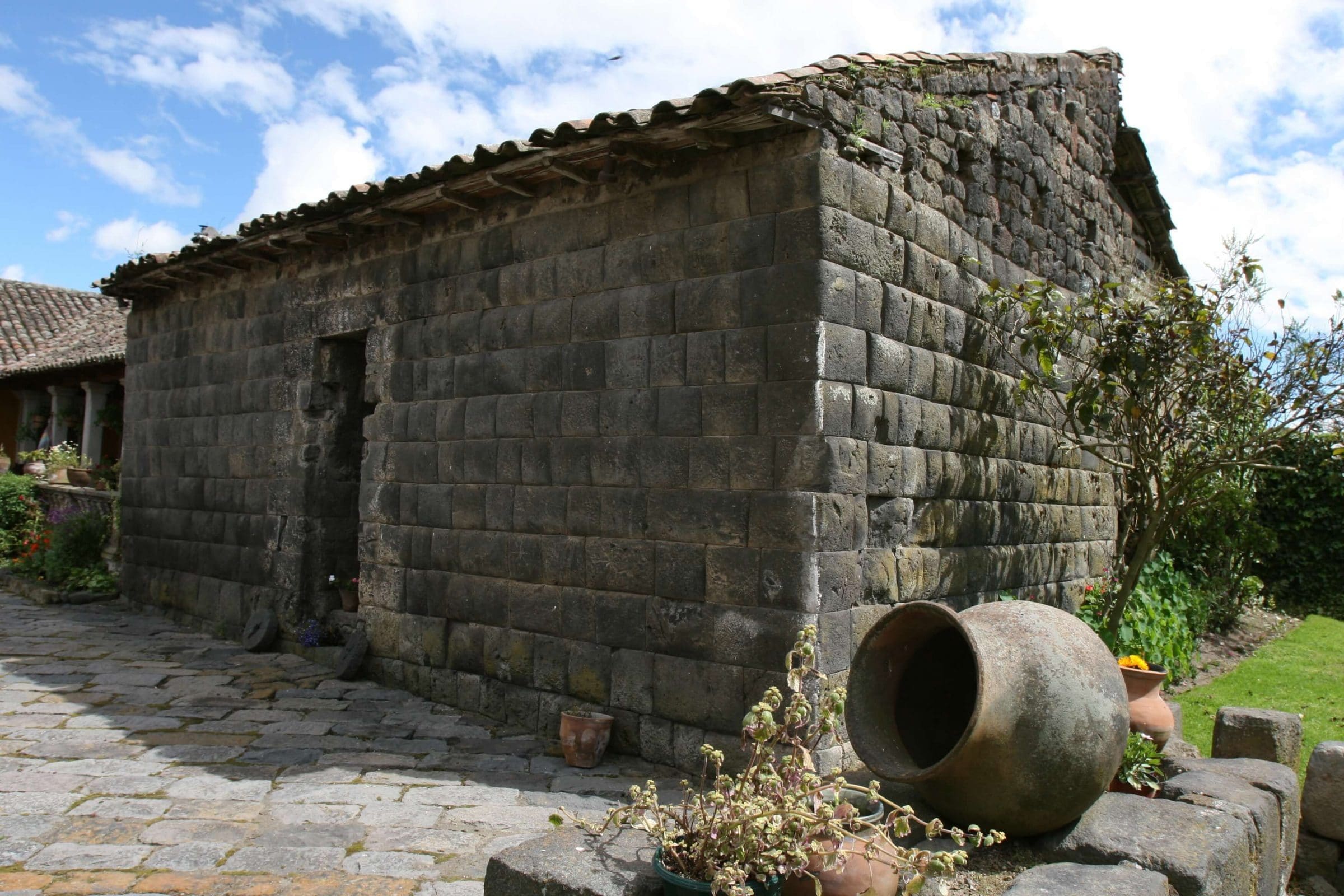Are you wondering where to sleep at Cotopaxi? Cotopaxi Volcano is a popular day-trip destination for visitors stopping through Quito or exploring the Northern Ecuadorian Andes. However, there’s a lot to do in Cotopaxi National Park and, depending on your activities, your trip there might merit an overnight, or even multi-night, visit.
If you’re wondering where to sleep at Cotopaxi, we’ll discuss some of your options in the following blog. 
It is possible to camp at Cotopaxi?
Though it’s not advertised very much, YES, it is possible to camp at Cotopaxi.
From personal experience, if you’re doing a longer trek like the Ruta del Condor or the Vuelta de Cotopaxi (loop around Cotopaxi Volcano), you can pretty much camp anywhere you like as long as you’re off the beaten path (note: park authorities might not agree with this!).
If you’re planning to camp closer to a park entrance, for instance, between the “Control Norte” Entrance, Tambopaxi Lodge, Limpiopungo Lagoon, and the Refuge, park authorities will expect you to camp in established campgrounds.
Camping in Cotopaxi is not officially free; the cost is $3 for locals and $5 for foreigners, although you may not get charged if no one approaches you (this isn’t charged at the entrance, either).
Campgrounds within the park are listed below. Some are also indicated on this map (look for the tent icon):
- About half a kilometer before the Plains of Limpiopungo coming from the Mariscal Sucre Station you’ll find a campsite that also offers two bathrooms.
- A second campground is at the crossroads to Laguna Limpiopungo.
- A third camping area is at Laguna de Santo Domingo, northeast of Cotopaxi volcano.
Apart from the established campsites within the park, you can camp at the following lodges and hotels: Tambopaxi Lodge, Hacienda El Porvenir, and Cuello de Luna Hotel. More on these in the next section.
If you’re planning on camping, make sure you have all the adequate gear! It gets cold out here and you’ll likely be at an elevation of around 3,000 – 4,000 meters above sea level (9,800 feet – 13,000 feet). Make sure you have:
- Winter sleeping bag
- Thermal mat
- Rainproof tent
- Cooking gear
- Food supplies and snacks
- Warm layers
- Fleece sweater or down jacket
- Waterproof jacket
- Hats
- Gloves
Fires are only permitted at campsites and never when wild camping. Only use a camp stove, in that case.
Places to stay nearby Cotopaxi
If you prefer not to rough it during your trip, other places to sleep in Cotopaxi include:
- Secret Garden Cotopaxi – The Secret Garden is one of my favorite eco-friendly hostels in all of Ecuador. Their prices are all-inclusive and include meals as well as a hike up a nearby peak, Pasochoa. You can sleep in the dorms (shared cabins), equipped with wood-fired stoves, the hobbit houses or bird houses, almost all with magnificent views of Cotopaxi. When you go to the Secret Garden, you’re basically all set. You can organize nearly all Cotopaxi-related activities from here.
- Tambopaxi Lodge – You’ll likely see Tambopaxi Lodge at some point as you explore Cotopaxi National Park. It’s an unmistakable red, adobe looking building with thatched roof. It’s located near the “Control Norte” entrance of the park and is a great place to stop for coffee and lunch, if not for the night. If you’re on a tight budget, you can camp here or stay in the dorms, though they also have more comfortable options (for a price!). The lodge organizes regular activities, including hour-long to day-long horseback rides across the páramo, or Andean grasslands surrounding the volcano.
- Hacienda San Agustín de Callo – This is definitely not for those of you on a budget! But if you’re willing to splurge, you won’t regret spending a night (or two) here. This hacienda was built on actual Incan ruins and the owners have preserved the original structure, while making renovations to provide visitors with a luxurious experience. It serves one of the best locro de papas (Ecuadorian potato soup), but if you’re not spending the night, expect to pay an additional $15 apart from your meal to explore the premises on a private tour with one of the staff members.
- Hacienda El Porvenir – This is a mid-range option, similar to Tambopaxi but located on another flank of the Volcano, closer to Volcano Rumiñahui. Here you’ll find all the comforts of a hotel or, if you prefer, you can also camp on their premises. Activities can also be organized from Hacienda El Porvenir.
- Hotel Cuello de Luna – This hotel isn’t inside the park itself and is located west of the main entrance. The location is more convenient if you want to combine Cotopaxi with Quilotoa since it’s located roughly halfway between both destinations. Activities can be organized here, like mountain biking and horseback riding, and if you’re on a budget, you can crash in their dorms or use the campsite.
Note: this is not an exhaustive list of the hotels and lodges around Cotopaxi.
Cities and villages to sleep after visiting Cotopaxi
After exploring Cotopaxi National Park, there are a few logical options to choose from as you continue your journey through Ecuador.
Quilotoa
The next obvious stop is Quilotoa Crater, located farther South from Cotopaxi, about three and a half hours driving. Cotopaxi and Quilotoa trips are often combined since they’re located in the same general area, they’re both accessible and definitely worth visiting.
Once you’re in Quilotoa, you might want to go on the Quilotoa Loop, which a multi-day hike through the area passing through small towns like Chugchilán and Isinliví.
Baños
Another must-visit place in Ecuador is Baños de Agua Santa, also a three and a half hour drive from Cotopaxi. Baños is known as the adventure capital of Ecuador, where you’ll find many activities, including river rafting, ziplining, cycling, hiking, not to mention access to the deeper Amazon through the town of Puyo.
Quito
While you may not expect to head back to the city after visiting Cotopaxi, it really depends on what you want to see next. From Quito you can go on other day trips to Mindo (cloudforest west of the Andes) and Otavalo (Saturday indigenous handicraft market).
Wanderbus Ecuador
If you’re planning on heading to Cotopaxi National Park, you should definitely consider hopping on the Wanderbus to Cotopaxi, which is one of the main stops for the Wanderbus, and the first one when leaving Quito.
The main advantage to taking the Wanderbus for this trip is because the bus will take you right up and into Cotopaxi National Park, whereas a regular bus that leaves from Quitumbe will drop you off on the highway and you’ll need to find another way into the park itself. Annoying.
Also, even if you decide to sleep at Cotopaxi, you can hop on the next Wanderbus that passes through and continue onwards to Quilotoa, Baños, and many more destinations countrywide.





